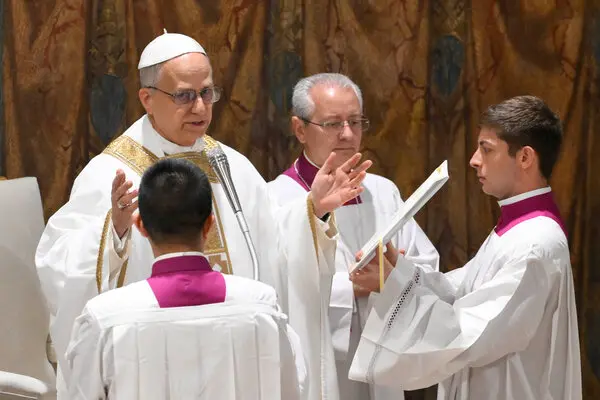In his inaugural Mass as the 266th Pope of the Roman Catholic Church, Pope Leo XIV, born Robert Francis Prevost, expressed deep concern over the growing societal trend of prioritizing technology, wealth, and success over Christian values. Held in the Sistine Chapel, the Mass was attended by the College of Cardinals and marked a significant moment in the pontiff’s early papacy.
Pope Leo XIV, at 69, became the first North American pope and brings decades of international missionary experience, particularly from Peru. His homily addressed the challenges faced by believers in a secular world, lamenting the societal wounds associated with a loss of faith, including diminished human dignity and familial crises.
The Pope’s message emphasized unity, peace, and the importance of spreading the Gospel, denouncing modern securities such as wealth and power. He highlighted the urgency of missionary efforts in environments where secular values often dominate, linking the absence of faith to societal issues like loss of meaning and family crises.
In a symbolic departure from tradition, Pope Leo XIV faced the congregation instead of the altar during the Mass, signaling a more inclusive and missionary-style leadership. This gesture reflects his commitment to engaging with the faithful directly and fostering a more accessible Church.
The Pope’s election has been met with optimism and hope from both clergy and laypeople worldwide, with many seeing him as a unifying figure amid global tensions. His presence has already begun to energize pilgrims and generate excitement throughout Vatican City.
Pope Leo XIV’s appointment is seen as a continuation of his predecessor’s progressive legacy, with particular interest in his positions on immigration and social justice. His formal inauguration Mass is scheduled for May 18, where he is expected to outline his vision for the Church’s future.
The Pope’s homily also addressed the growing marginalization of Christian faith in contemporary society, warning against reducing Jesus to a mere charismatic figure. He called for a sincere witness to Christ as Savior and emphasized the need for the Church to shine amid global darkness.
In his address, Pope Leo XIV acknowledged the cardinals who elected him and expressed his belief that he was divinely chosen to help guide the Church as a symbolic “ark of salvation.” He emphasized spiritual integrity over material grandeur to illuminate the world’s darkness.
The Pope’s message resonated with many, highlighting the importance of faith in navigating the challenges of the modern world. His commitment to addressing societal issues through a Christian lens offers a hopeful perspective for the future of the Church.
As Pope Leo XIV embarks on his papacy, his focus on faith, unity, and social justice sets a tone for the direction of the Catholic Church in the coming years. His leadership promises to inspire believers to prioritize spiritual values in a world increasingly dominated by material concerns.

